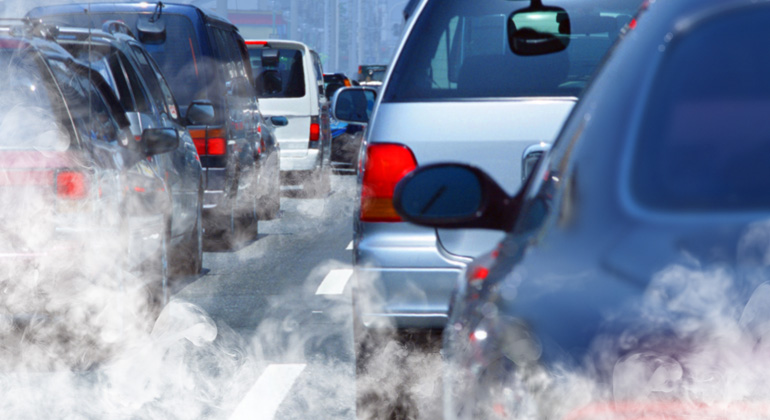Dutch car tax regime leaves Germany far behind in curbing CO2 emissions
The Netherlands had the lowest CO2 emissions from new cars in the European Union last year, thanks to its tax regime favouring fuel economy and low-carbon vehicles.
Germany and Poland are among the countries with the highest C02 emissions from new cars and the weakest national tax policies, a report by NGO Transport & Environment has found.
Cars are responsible for 15% of Europe’s total CO2 emissions and are the single largest source of emissions in the transport sector.
The best performing countries in T&E’s Green Car Tax ranking , such as the Netherlands, Denmark and France, had vehicle registration and company car taxes that incentivised buyers to pick low carbon vehicles.

© euractiv.com | transportenvironment.org | CO2 emmissions from new cars in Europe.
But car taxes pinned to CO2 emissions in many EU countries have skewed the market in favour of diesel, with diesels now representing about half of all new cars sold in the EU. Besides lower fuel duty, diesels emit about 15% less CO2 than petrol cars.
But the lowest emissions found in countries with the lowest share of diesels, such as Denmark and the Netherlands. That dispelled the myth that increasing diesel cars in national fleets is needed to comply with C02 emissions laws, according to T&E, which branded them a major cause of urban pollution.
Only one new Dutch car in four is a diesel, and one in three new Danish cars are diesel because both countries have taxation surcharges on the fuel.
Netherlands vs Germany
In 2013, the Netherlands achieved the lowest CO2 emissions from new cars of all 28 EU countries at 109 g/km. It also shows the second best overall reduction across Europe since the introduction of binding CO2 limits for new cars in 2008, at 30,4%.
Germany’s 2013 average CO2 emissions from new cars was 136,1 g/km, by far the worst performer of the EU15. The largest European car market, with almost three million new cars registered in 2013, does not have a significant car registration tax, T&E said. Annual circulation taxes in Germany were too weak on CO2 emissions to have little or no effect on consumer choice, T&E said.
Greg Archer, clean vehicles manager at T&E, said: “This report shows that effective vehicle and fuel taxes can drive the market for lower carbon, fuel efficient vehicles and avoid the air pollution caused by high number of diesels. By graduating company car and registration taxes strongly with CO2 emissions, and taxing diesel vehicles and fuel at a higher level than gasoline cars, both CO2 and air pollution emissions can be sharply reduced.”

© euractiv.com | transportenvironment.org | Company cars – CO2 emissions ranking.
The Netherlands also has a strong differentiation against CO₂ emissions of the taxation of ‘benefit in kind’ payments for company cars, which were further revised downwards in 2012.
The EU’s first obligatory rules on carbon emissions require car manufacturers to limit their average car to a maximum of 130 grams of CO2 per kilometre by 2015, and 95g by 2021.
Car manufacturing countries were also offering huge subsidies for the private use of company cars, said Archer. This encouraged the use of larger, more polluting cars.
“Governments should bring an end to these polluting handouts by increasing company car tax,” he said.
The Organisation for Economic Co-operation and Development ranked Germany third highest among its members for its company car subsidies. Belgium was the worst OECD member, followed by Portugal. “Environmental outcomes across the OECD would be greatly improved by ending the undertaxation of company cars, particularly the distance component,” it said.
The benefit-in-kind for a German company car is at 12% of the car price per year, and is not graduated for CO2. On top of that, the federal government promotes a labelling scheme so counterintuitive that it rates a 191g/km Porsche Cayenne the same as a 114g/km Citroen C3, T&E said.
Report: CO2 emissions from new cars in Europe: Country








